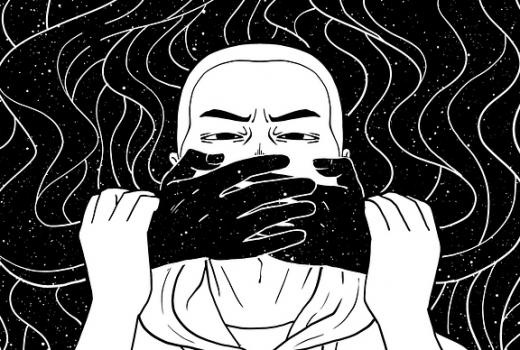The Forbidden Media: A Lesser Recognised Threat to Freedom of Expression Part 3
In 2017, A Current Affair journalist Ben McCormack was arrested for child abuse material. He had no images of actual children (or fictional children) or any images at all. In fact, what got him into trouble wasn’t even public; it was based on the contents of a private online conversation that contained neither a conspiracy to commit a crime nor an admission to committing a crime.
There wasn’t even a threat to commit a crime, nor did the conversation contribute to crime (e.g. stalking). The issue was that in private conversation he discussed his disturbing sexual fantasies about children. Under Australian law, these conversations constituted child abuse material.
To me, the idea that the government can punish someone for private conversations is downright Orwellian and ripe for government abuse. It certainly is not acceptable in a free society irrespective of the objectionable content of the conversation. I would even call this a case of thought crime.
I have always been a firm believer that people should be punished for their actions rather than their thoughts, and that thoughts and ideas alone should never be criminalised. I also believe that individual rights should not be conditional on whether we like a person or group, because how we treat those most unlikeable within our society can affect the rights of everyone. Rights should be for all people, even unlikeable groups such as paedophiles.
People are responsible for and in control of their own behaviour
This is uniquely important in common law countries such as Australia where a legal ruling becomes a precedent in case law and can be used to affect the outcome of future cases. The Ben McCormack outcome could be applied to a variety of situations.
For example, the case may inspire police to prosecute schoolboys who discuss sexual fantasies about their female classmates or the attractiveness of their favourite female anime character around their age. There have been multiple recent cases of public outrage over schoolboys talking about the attractiveness of their female classmates, so this wouldn’t be much of a stretch.
Even a victim of child sexual abuse who decides to write an account of their experiences in their personal diary or a book could find themselves on the wrong side of the law if a person in a position of power takes issue with it. The government, after all, has no sense of shame or common sense.
The case law could also transfer over to cases that don’t even involve child abuse material. For example, people who enjoy offensive humour, those who have controversial political stances, or even people who use politically incorrect language. I’d rather not have the government monitoring and prosecuting me or other people for the content of our private conversations. Not only does it have a chilling effect on freedom of expression and thought, it is a massive invasion of privacy.
The apparent justification for this expansive definition of child abuse material is child safety. It is one of the four horsemen of civil liberties erasure, the others being public safety/law and order, national security, and public health. The idea is that cartoons, drawings and literature that have sexual themes regarding those under 18 inspire others to sexually abuse people under the age of 18. It is an argument of ‘potential harm’.
With actual child porn, you can make a direct link between the sexual abuse of children and its existence, as the latter cannot exist without the former. For potential harm, things are more complicated.
Even a victim of child sexual abuse who decides to write an account of their experiences
It cannot be said there is such a link with cartoons, drawings and literature that have sexual themes of those under the age of 18. Such material does not force or cause anyone to do anything. Fantasies do not cause evil acts; at worst they reveal a lack of morality and respect for the rights of others.
Consuming material that depicts or describes a particular bad act will not cause a person to commit that bad act - people are responsible for and in control of their own behaviour. It’s called personal responsibility. Paedophilic material does not cause there to be more or less paedophiles on the planet; paedophilia is a mental illness that someone is born with or at least develops at a young age.
Given this, the victimless and subjective nature of cartoons, drawings and literature, and with the high potential for government abuse, the possession of such material should not be classified as a crime. Not even where it is grossly paedophilic material written or drawn by some disturbed paedophile. The price of freedom of expression is defending the expression of ideas that are controversial or objectionable, made by people we don’t always like.
If governments are unwilling to legalise such content, they should at least classify the crime differently so that art, cartoons and literature are not in the same category as actual child porn. This will at least allow the average person to know the difference.





"The price of freedom of expression is defending the expression of ideas that are controversial or objectionable, made by people we don’t always like."